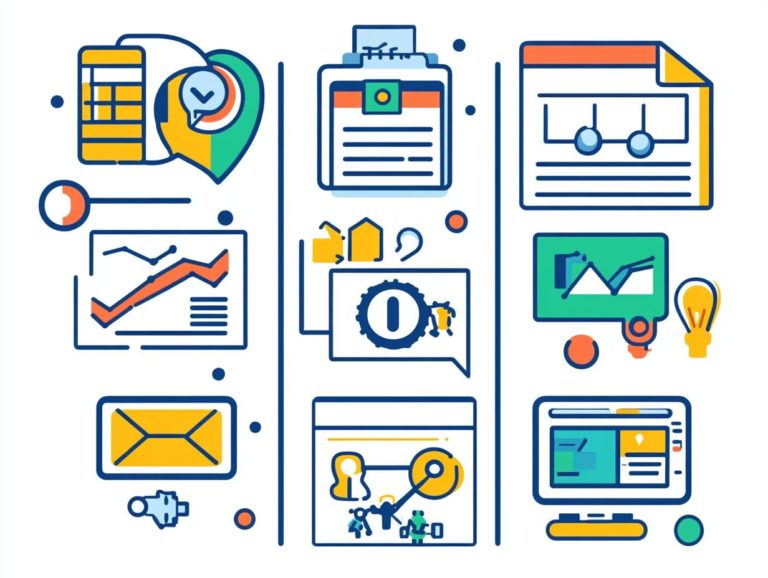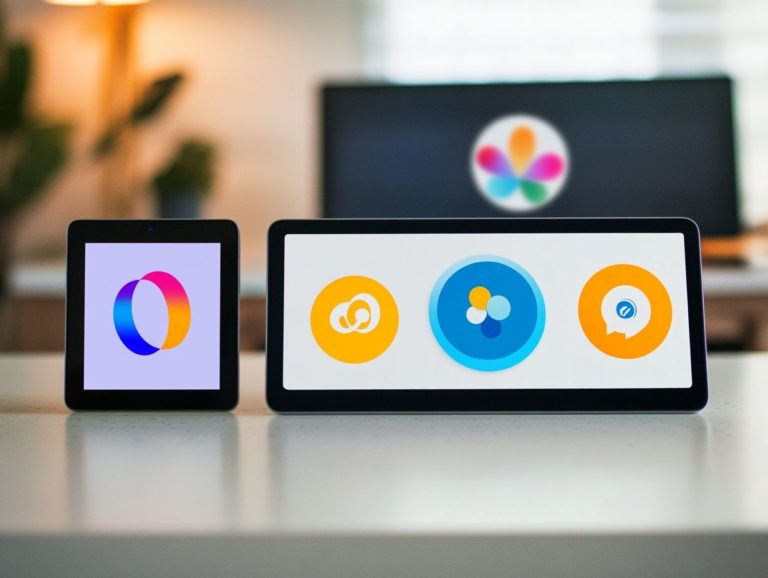43. 5 Key Benefits of CRM for Educational Institutions
In today s rapidly evolving educational landscape, institutions are increasingly embracing Customer Relationship Management (CRM) systems to elevate their operations.
This article delves into five key benefits of CRM for educational institutions. You ll see how it enhances communication, streamlines enrollment processes, and strengthens alumni relations.
You ll discover essential features of a CRM designed for education, advantages for various departments, potential challenges, and best practices for successful implementation.
By the end, you ll see how a well-integrated CRM can transform the educational experience for students, staff, and alumni alike.
Contents
- Key Takeaways:
- 1. Improves Communication and Collaboration
- 2. Streamlines Enrollment and Admissions Processes
- 3. Enhances Student Engagement and Retention
- 4. Facilitates Data-Driven Decision Making
- 5. Boosts Alumni Relations and Fundraising Efforts
- What Is CRM and How Does It Work for Educational Institutions?
- What Are the Key Features of a CRM for Educational Institutions?
- How Can a CRM Benefit Different Departments in an Educational Institution?
- What Are the Potential Challenges of Implementing a CRM in an Educational Institution?
- What Are the Best Practices for Implementing and Utilizing a CRM in an Educational Institution?
- Success Stories of Educational Institutions Using CRM
- Frequently Asked Questions
- What is CRM and how is it useful for educational institutions?
- What are the 5 key benefits of CRM for educational institutions?
- How does CRM improve communication and engagement?
- How does CRM help with admissions and enrollment processes?
- How can CRM support personalized and targeted marketing for educational institutions?
- How does CRM improve data management for educational institutions?
- How can CRM enhance alumni relations and fundraising for educational institutions?
Key Takeaways:
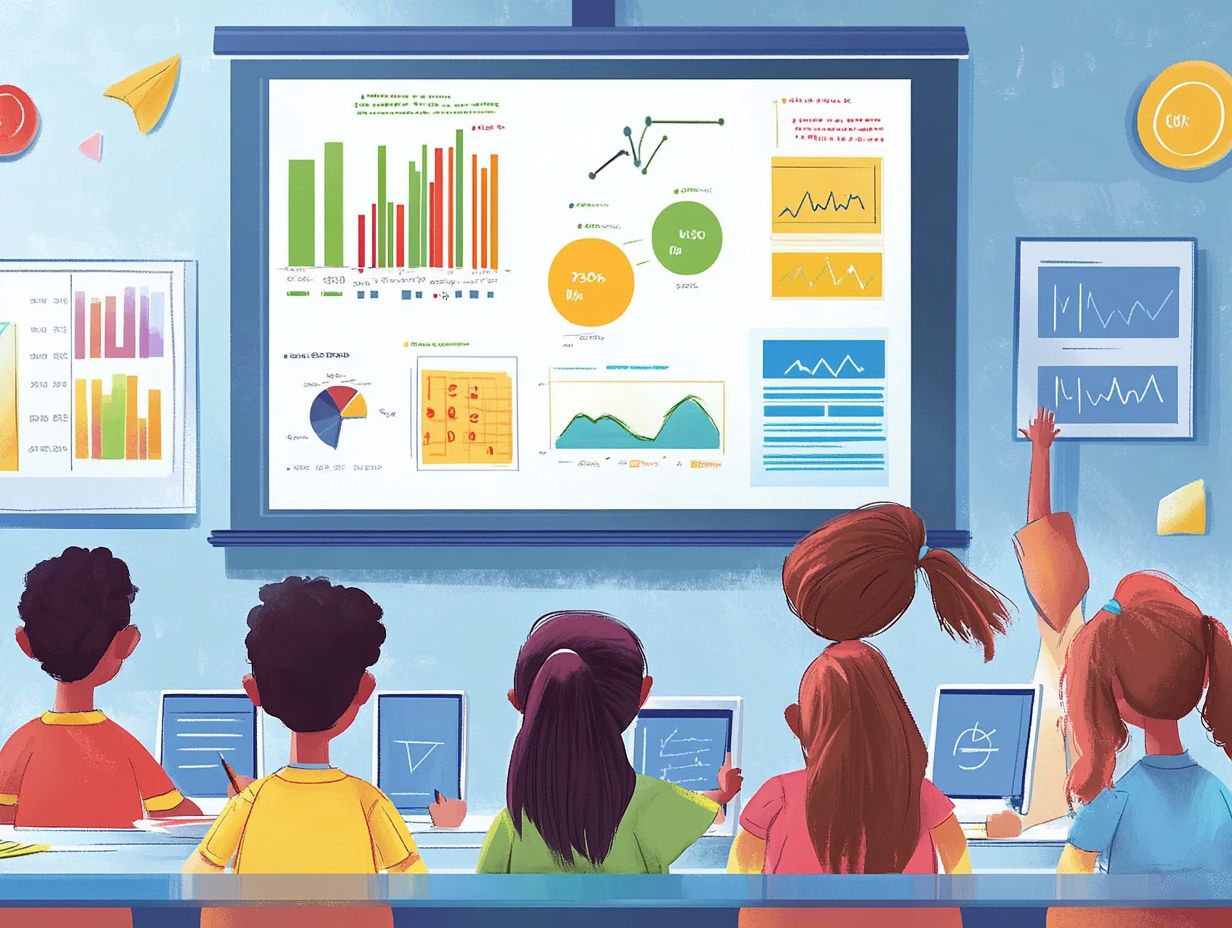
CRM improves communication among departments, leading to more efficient processes.
It streamlines enrollment by centralizing data, reducing staff workload and enhancing the experience for prospective students.
CRM also boosts student engagement by providing personalized interactions that lead to a more positive learning experience.
1. Improves Communication and Collaboration
Enhancing communication and collaboration within your institution is essential. A robust CRM can significantly improve inter-departmental communication.
This helps reduce costs and enhances efficiency. By integrating various communication channels, everyone faculty, students, and staff stays informed and aligned.
A centralized data management system allows immediate access to vital information. It also lets departments use historical data to respond effectively to student inquiries.
Understanding past interactions allows you to tailor responses to individual needs, improving overall satisfaction. Implement clear strategies using multiple technology channels to foster open dialogue.
Best practices to consider include:
- Regular training sessions for staff to familiarize them with CRM tools.
- Maintaining an updated database for insightful feedback management.
This integrated communication framework supports a cohesive educational experience, benefiting both students and staff.
2. Streamlines Enrollment and Admissions Processes
CRM solutions are vital for making enrollment and admissions processes easier. They allow you to manage prospective students efficiently.
By automating workflows and integrating student information, you can handle inquiries, fee management, and document collection smoothly.
This efficiency reduces the chance of human error and frees staff to focus on strategic initiatives. Integrated systems ensure prospective students receive timely updates and personalized communications.
As a result, their overall experience improves, creating a stronger sense of engagement. Use analytics to identify trends and refine your enrollment strategies.
3. Enhances Student Engagement and Retention
Student engagement and retention are crucial goals for educational institutions. You can leverage CRM platforms that offer essential tools to create personalized experiences for academic success.
Utilizing data insights allows you to tailor support services and maintain strong connections with current students and alumni. These platforms help deliver targeted messages that resonate with students needs.
Involving alumni in mentorship programs strengthens the community. Their success stories inspire current students and provide essential guidance.
Implementing effective strategies through CRM systems leads to higher retention rates. Students feel valued and supported, fostering a robust network that lasts beyond graduation.
4. Facilitates Data-Driven Decision Making
Data-driven decision-making is vital for growth in higher education. CRM systems provide access to performance metrics and historical data, guiding informed choices that enhance student experiences.
This approach streamlines administrative tasks and helps identify improvement areas effectively. With these insights, you can allocate resources wisely and attract the right students.
Harnessing data analytics gives you a clearer view of student needs and retention factors. It paves the way for better academic programs and personalized support services.
5. Boosts Alumni Relations and Fundraising Efforts

A strong relationship with alumni is vital for sustainability and growth. CRM systems enhance these connections and amplify fundraising efforts.
By using various communication channels, you can actively engage alumni in growth initiatives. These systems maintain up-to-date records and track alumni interactions effectively.
Tools like email campaigns and social media management help create tailored engagement strategies. This makes your outreach more effective and meaningful.
Alumni can easily participate in fundraising initiatives through dedicated portals. This strengthens their relationship with the institution and cultivates a vibrant support network.
What Is CRM and How Does It Work for Educational Institutions?
Customer Relationship Management (CRM) systems are crucial for educational institutions. They enhance connections with students, alumni, and stakeholders through effective data management, and can significantly increase productivity in schools, as outlined in 7 ways CRM can boost productivity in schools.
These systems streamline processes from admissions to alumni engagement. Every interaction becomes meaningful and data-driven.
By centralizing information, staff can track engagement and build relationships over time. Good CRM software simplifies access to records while ensuring compliance with regulations.
Integrating CRM with other systems, like Learning Management Systems, boosts efficiency. This creates an environment where personalized communication thrives.
What Are the Key Features of a CRM for Educational Institutions?
Key features of a Customer Relationship Management (CRM) system designed specifically for educational institutions include seamless software integration, robust student information systems, and advanced reporting tools that allow for detailed data review. Together, these features enhance data access and management, improving operational efficiency and enriching the student experience.
Effective CRM solutions often integrate automated workflows that streamline routine administrative tasks. This reduces manual effort, enabling your staff to concentrate on strategic initiatives.
For instance, admissions offices can automate follow-up communications with prospective students. This ensures timely responses and personalized engagement.
Data analytics tools enable departments to monitor student performance and engagement metrics. They provide the insights needed for targeted interventions that boost academic success. Communication tools within the CRM help departments work together, allowing faculty and administration to share insights and coordinate support services more effectively. This leads to a more connected and responsive educational environment.
How Can a CRM Benefit Different Departments in an Educational Institution?
A CRM system brings remarkable advantages to various departments within an educational institution. It enhances operational efficiency, trims costs, and boosts inter-departmental communication. By centralizing data and facilitating seamless interactions, a CRM supports everyone from admissions to student services and beyond, making implementing CRM in the education sector a valuable strategy.
Take the admissions department, for example. With CRM features at their disposal, they can manage inquiries from prospective students and streamline the application process, ensuring timely follow-ups and personalized communication.
Academic advising can also harness these tools to monitor student progress and engage in proactive outreach. This enables students to make informed decisions about their academic journeys.
On the alumni engagement front, the team can leverage CRM analytics to craft targeted outreach campaigns. This fosters relationships with former students and invites their participation in campus events.
A robust CRM system truly revolutionizes how departments collaborate and communicate. It makes it easier for them to address unique needs and enrich the overall educational experience.
What Are the Potential Challenges of Implementing a CRM in an Educational Institution?
Implementing a CRM in your educational institution can bring great benefits, but it also comes with challenges. To ensure success, focus on compliance, resource management, and staff adoption, and consider exploring the top CRM software for educational institutions.
Crucial factors to consider include creating comprehensive training packages tailored to enhance staff proficiency with the new system. This training should dive into both the technical elements of the CRM and how it aligns with your institution s goals.
Cultivating a culture of adaptability will help minimize resistance among staff. This allows them to view the CRM not merely as a tool but as a cornerstone for the institution s future growth and student engagement.
What Are the Best Practices for Implementing and Utilizing a CRM in an Educational Institution?
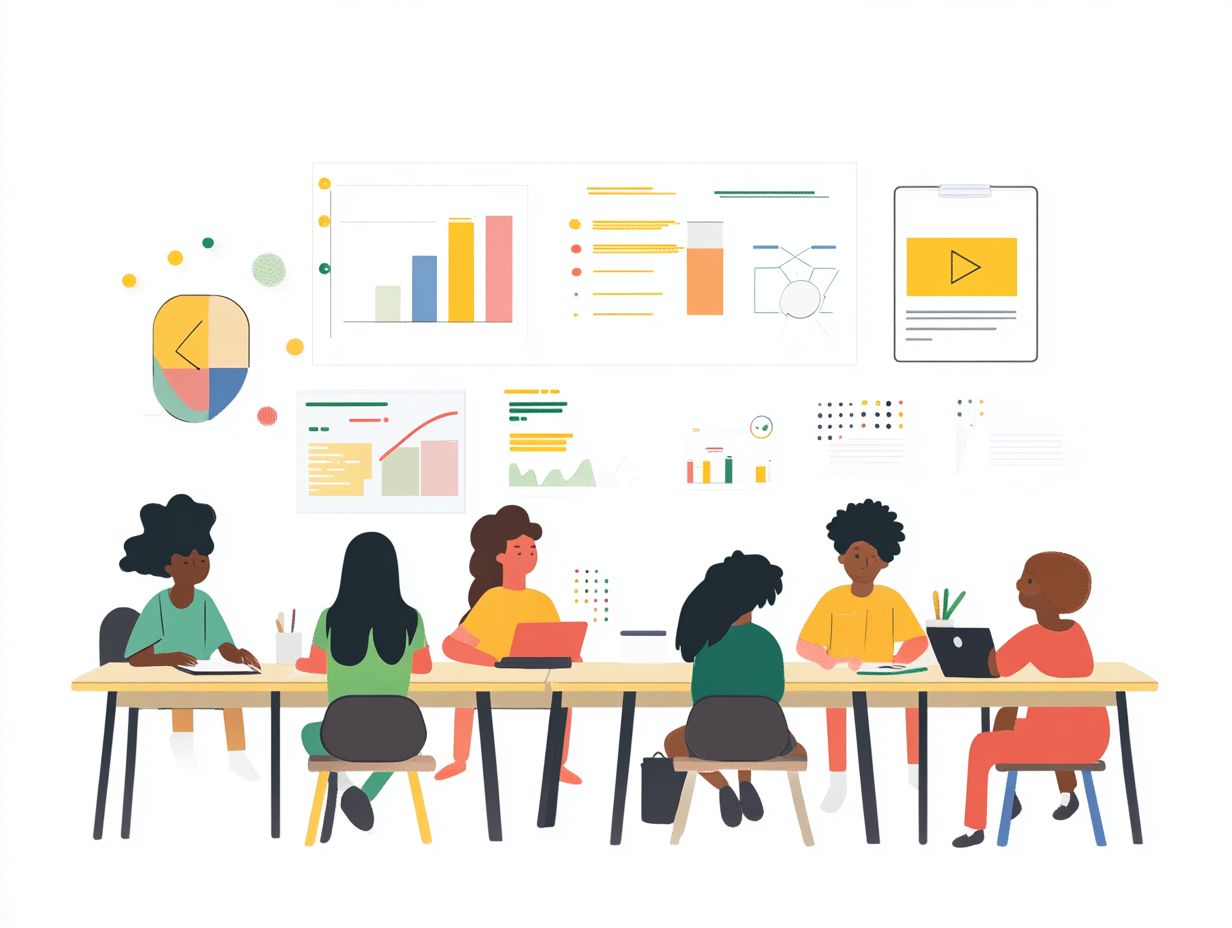
Implementing a CRM in an educational institution calls for adherence to best practices to maximize its effectiveness and ensure user adoption throughout the organization.
Follow these best practices: provide thorough training, set clear goals, and maintain continuous support for staff and stakeholders.
A strong emphasis on ongoing training is essential. It equips you and your team with the confidence and skills needed to navigate the system efficiently.
Actively seeking and managing user feedback allows you to refine processes and address any challenges promptly.
Aligning the CRM functionalities with your institution s strategic goals not only boosts operational efficiency but also fosters an environment in which both students and staff can thrive.
Engaging stakeholders in this alignment process helps cultivate a shared vision, ultimately driving success and enhancing overall satisfaction within your community.
Success Stories of Educational Institutions Using CRM
Many educational institutions are reaping the benefits of CRM systems, as these tools enhance operational efficiency and boost collaboration for better student engagement.
A university in Texas adopted a CRM to streamline its admissions process. The staff effectively managed inquiries, resulting in a 20% increase in student retention over two years.
A college in California used CRM for alumni outreach. This effort led to a 30% rise in alumni participation during fundraising events.
These examples show that CRM systems optimize operations and nurture strong relationships within the academic community.
Frequently Asked Questions
What is CRM and how is it useful for educational institutions?
CRM stands for Customer Relationship Management software. It helps organizations build and maintain relationships with their customers. For educational institutions, CRM can manage relationships with students, parents, alumni, and other stakeholders, providing many benefits.
What are the 5 key benefits of CRM for educational institutions?
- Improved communication and engagement
- Streamlined admissions and enrollment processes
- Personalized and targeted marketing
- Efficient data management
- Enhanced alumni relations and fundraising
How does CRM improve communication and engagement?
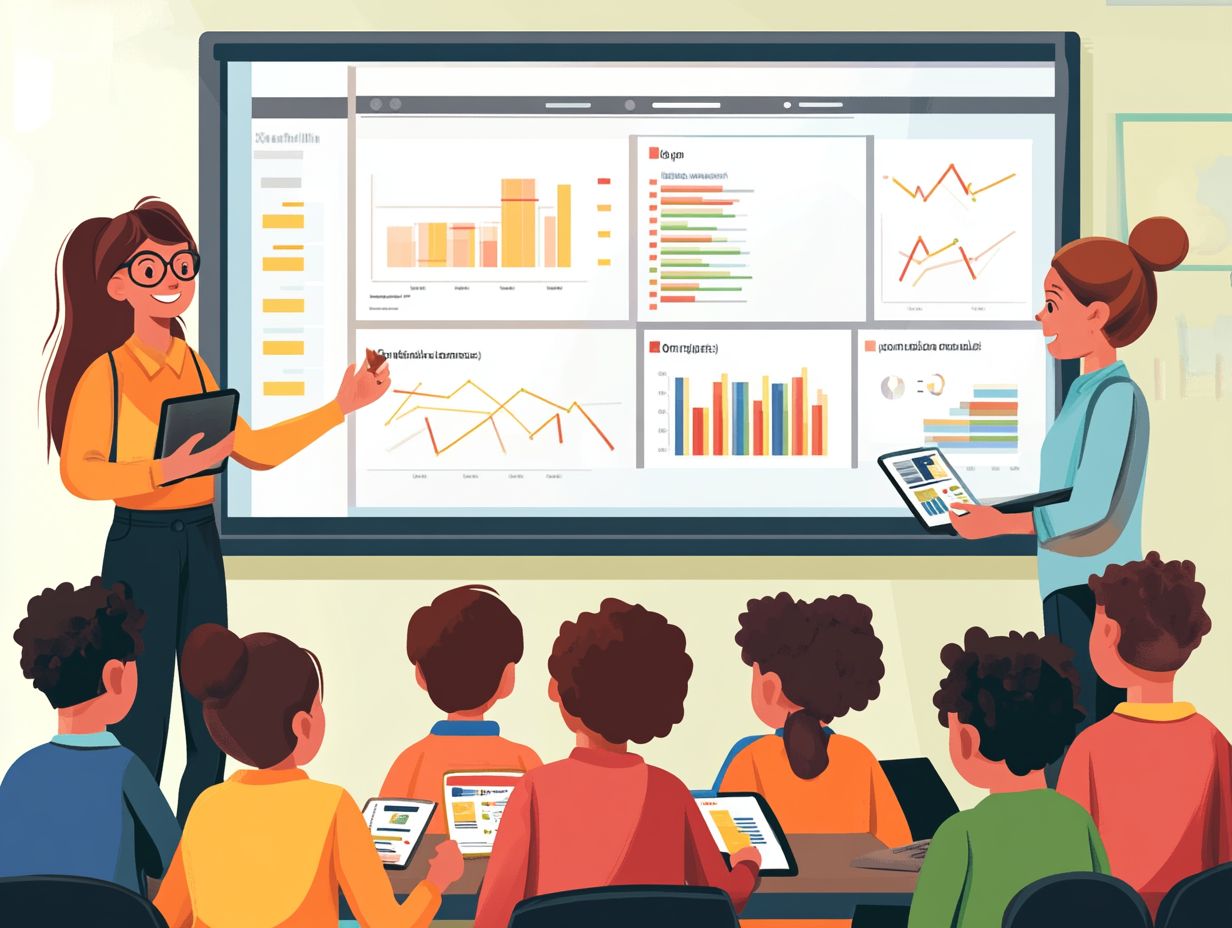
CRM allows educational institutions to centralize all communication and interactions with students, parents, and other stakeholders. This centralization makes it easier to stay in touch and provide timely updates while addressing any concerns.
CRM also facilitates two-way communication through features such as chatbots and social media integration.
How does CRM help with admissions and enrollment processes?
CRM automates and streamlines various aspects of admissions, such as application management and document submission. This not only saves time but also ensures a smooth experience for prospective students and their families.
How can CRM support personalized and targeted marketing for educational institutions?
CRM collects and organizes data on students and alumni, enabling institutions to create targeted marketing campaigns. These campaigns can include personalized emails, social media ads, and event invitations to attract and retain students.
How does CRM improve data management for educational institutions?
CRM provides a centralized system for managing and analyzing data on students and alumni. This reduces the risk of data loss and allows for better tracking of demographics and performance, informing decision-making.
How can CRM enhance alumni relations and fundraising for educational institutions?
By maintaining a comprehensive database of alumni, CRM supports personalized outreach for alumni relations and fundraising. This helps institutions stay connected with alumni and increase donations.

